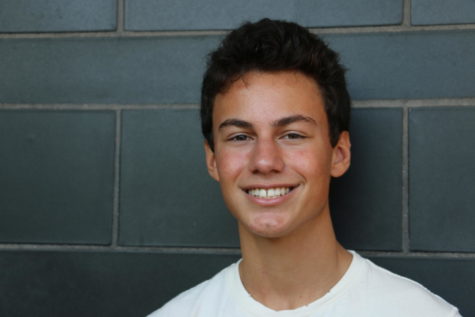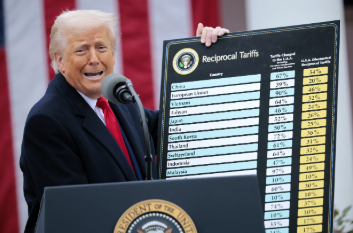Super Results on Super Tuesday
“Super Tuesday” is the day when a dozen states and one territory hold their nominating contests for the upcoming presidential election. For the 2016 Presidential Election, Super Tuesday was March 1st, 2016. The states voting on Super Tuesday for both the Republican Party and the Democratic Party this year were Alabama, Arkansas, Georgia, Massachusetts, Minnesota, Oklahoma, Tennessee, Texas, Vermont, Virginia. Also, Alaska held its Republican caucus and Democratic contests were held in both Colorado and American Samoa. All of the polls begin and end at different times of the day, with the latest in Alaska ending around midnight. This year “Super Tuesday” was nicknamed the “SEC Primary” due to the numerous southern states heading to the polls in reference to college football’s Southeastern Conference and it’s high level of play.
Super Tuesday, as a concept began because Southern Democrats wanted to highlight the significance of their large population in states such as Alabama, Arkansas, Georgia, Oklahoma, Tennessee, and Virginia. It is no different than any other primary dates, except for the number of primaries taking place in one day.
In the Democratic party, the two contenders were Hillary Clinton and Bernie Sanders. All of the other potential Democratic candidates had already dropped out of the race. Clinton took the lead in Alabama with 78% of the total delegates, as well as in Arkansas with 66% of the delegates. In Colorado, Sanders took the vote with 59% of the delegates. Clinton took the lead in Georgia with 71%, and in Massachusetts with 50%. Sanders took Minnesota with 62%, Vermont with 86%, and took Oklahoma with 52%. Clinton took Tennessee, Texas, and Virginia with 66%, 65%, and 64% percent of the vote respectively.
Donald Trump, as anticipated by pre-Super Tuesday polls, dramatically increased his delegate count by dominating the vote to take 7 of the 11 voting states, increasing his delegate count by 237 to rest at 319. Trump easily defeated his competition in Alabama, Arkansas, Georgia, Massachusetts, and Tennessee, while prevailing with narrow margins in Vermont and Virginia, barely pulling ahead of Marco Rubio and John Kasich. Senator Ted Cruz succeeded in Alaska, Oklahoma, and his home state of Texas (the state containing the second most delegates with 155, just behind California). Cruz was in dire need of a Texas victory to maintain and further his campaign’s momentum following numerous losses in Nevada, New Hampshire, and South Carolina. Following Super Tuesday, Cruz stands at 226 delegates, needing a majority of 2,472 delegates to win the nomination. Florida Senator, Marco Rubio failed to gain any stronghold in the election, by just winning a single state, Minnesota. Rubio failed to achieve a majority in Virginia where the campaign worked tirelessly and poured millions of dollars into, hoping to have the best chance at defeating Donald Trump. Marco Rubio now rests at 82 delegates. Ohio Governor, John Kasich and Dr. Ben Carson remained winless on Super Tuesday. John Kasich classified Super Tuesday as an away game for him, believing that his home turf resides in the Midwestern region of the nation, as well as his homestate of Ohio. Following Tuesday’s results, Ben Carson suspended his campaign after the disappointing results. Dr. Carson looks to take an honorary position as Chair of My Faith Votes, an organization motivated to mobilizing the 25 million Evangelical Christians who did not vote in the 2012 election.
Following the primaries on Super Tuesday, 2012 presidential hopeful, Mitt Romney delivered a blistering speech in an attempt take down the Republican frontrunner, Donald Trump, and sway voters into voting for another candidate. Romney took shots at Trump’s track record, calling him out on his former bankruptcies, his foreign policy, character, and morality. Romney even offered a way to avoid the nomination of Trump by urging voters to vote for the candidate of their state (Florida for Rubio, Ohio for Kasich). By spreading the number of delegates allocated to each candidate, Trump would be unable to receive a majority of 1,237, therefore forcing a brokered convention. Delegates would be free to vote for any candidate of their choice, rather than being tied down to a state’s decision at the ballot box. Many Republicans fear that a brokered convention would lead to civil war within the GOP and a possible 3rd party “conservative” candidate to oppose Trump.
Your donation will support the student journalists of West Bloomfield High School. Your contribution will allow us to purchase equipment and cover our annual website hosting costs.

Ari is a senior and this is his fourth year in Spectrum. He loves the school spirit at West Bloomfield High School, especially the attendance at sports...
Avani Samandur is a junior who enjoys writing and expressing her opinions on pressing issues of the world. She believes that everyone should be informed...










